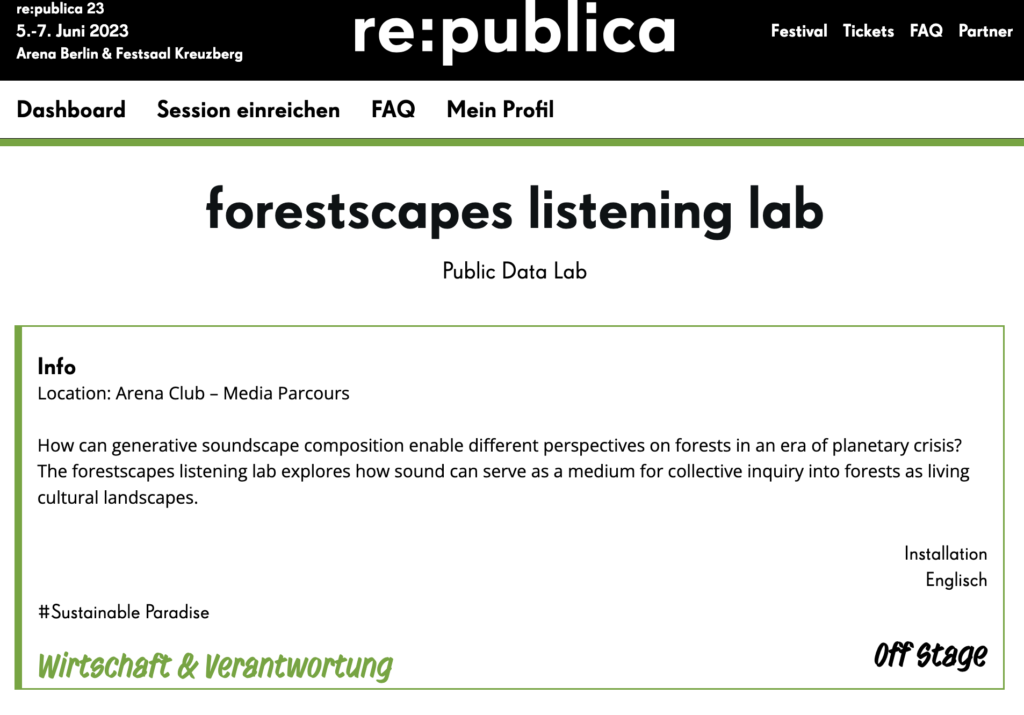
As part of the forestscapes project we’re organising a listening lab at re:publica 23, the digital society festival in Berlin, 5-7th June 2023:
How can generative soundscape composition enable different perspectives on forests in an era of planetary crisis? The forestscapes listening lab explores how sound can serve as a medium for collective inquiry into forests as living cultural landscapes.
The soundscapes are composed with folders of sound from different sources, including field recordings from researchers, sound artists and forest practitioners, as well as online sounds from the web, social media and sound archives. They are composed using custom scripts with the open source supercollider software as well as open source norns device, a “sound machine for the exploration of time and space”.
The re:publica installation will include soundscapes from workshops in London and Berlin – including some new pieces from the Environmental Data, Media, and the Humanities hackathon last week.
Cross-posted from jonathangray.org.